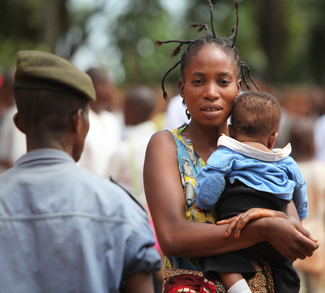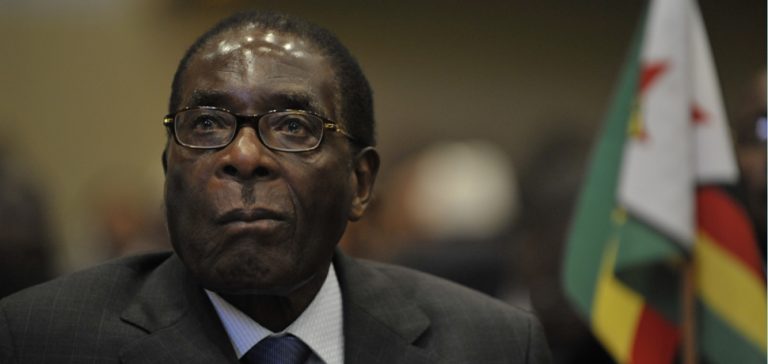Summary
Further instability and mass emigration under President Robert Mugabe is a threat to both Zimbabwe and the region as neighboring countries face a refugee crisis.
Opposition and international pressure on Mugabe’s government and the crackdown on dissenters in response have raised the stakes in the battle for the future of Zimbabwe. Increased violence, political repression and emigration are anticipated.
Analysis
History
The recent death of Ian Smith stirred few hearts in Zimbabwe, where many see the existing violent political condition as a failure of his past regime. Smith declared independence for the British colony in 1965 but drew infamy for introducing race-based land reform policies. In the words of Smith, “I don’t believe in black majority rule over Rhodesia… not in a thousand years.” Minority white rule resulted in Zimbabwean nationalist leaders waging armed struggle against the Smith regime, leaving over 30 000 dead, mostly black Zimbabweans.
Facing national threats and international pressure, Robert Mugabe took power in 1980 with his militant faction of ZANU PF and inherited a relatively strong economy – the Zimbabwean dollar was even stronger than the British pound.
Many argue, however, that Mugabe’s repressive and mismanaged regime has had worse consequences than Smith’s ‘white utopian’ Rhodesia. The seizure of white-owned commercial farms in 2000 did not benefit landless blacks but rather induced a collapse of the agriculture-based economy. Food shortages and hyperinflation is chronic and most Western aid and regional investment has pulled out of Zimbabwe in protest of the land seizures.
Politics
Amid skyrocketing unemployment, forced evictions and housing demolitions, inflation rates of nearly 8000% (the highest in the world), central bank chief Gideon Gono recently ruled out any monetary intervention, while ZANU PF has allocated Z$4.4 trillion (US$367 million) to the printing of election campaign material for Mugabe.
Apartheid South Africa has always maintained a strategic interest in Zimbabwe. Their current president, Thabo Mbeki, endorses the opposition party MDC (Movement for Democratic Change) in efforts to relieve the political and economic crisis in Zimbabwe. South Africa seeks to avoid a massive influx of refugees in the event of regional political strife. Botswana has already built electric fences and South Africa has placed military personnel along the border to stem the flow of thousands of Zimbabweans fleeing to find work and escape persecution.
One key objective of the MDC is safe and fair parliamentary elections next year. ZANU PF insiders informed Mbeki that the MDC should urge Western governments to scrap sanctions against Mugabe and his officials and to stop “grandstanding about non-existent political violence.” Yet within Zimbabwe, both private publications and people who criticize ZANU PF have come under legal and political pressure. According to Reporters without Borders: “Surveillance, threats, imprisonment, censorship, blackmail, abuse of power and denial of justice are all brought to bear to keep firm control over the news”.
Human Rights Violations
Two months ago, Zimbabwean student leader Mehluli Dube was charged with treason. He is alleged to have said “if President Mugabe does not want to go, we will remove him by the ballot or the bullet”. Ironically, Army Brigadier General David Sigauke recently gave the following statement at a graduation ceremony for soldiers: “As soldiers, we have the privilege to be able to defend this task on two fronts, the first being through the ballot box and second being the use of the barrel of the gun should the [worst] come to the worst.”
Over the last few years, numerous treason charges have been laid at the feet of important politicians, including MDC leader Morgan Tsvangiria, though all charges were eventually dropped. Nevertheless, a student-military confrontation could be the violent catalyst which triggers a refugee crisis.
Should Mugabe be defeated, the MDC will come under pressure from his military vanguard. Mugabe has increased the number of foreign military personnel serving in parastatal agencies. According to zimonline.co.za, there is Attorney General Sobuza Gula-Ndebele; a former military intelligence officer, former air commodore Mike Karakadzai who controls the National Railways of Zimbabwe, and retired colonel Samuel Muvuti who heads the state Grain Marketing Board.
In 2002, then army commander retired General Vitalis Zvinavashe informed a press conference that the military would not be loyal to anyone who did not participate in Zimbabwe’s liberation war. This was perceived as a personal attack on the leader of the MDC, Tsvangiria, a former trade union leader who did not fight in the 1970s war of independence.
Zimbabwean civil rights leaders are witnessing state-sponsored human rights violations against the media, judiciary, union and opposition activists. According to the Media Institute of Zimbabwe, a new law enacted last August allows Mugabe’s government to spy on private internet and telephone conversations. The ruling ZANU PF in capital Harare defends these acts as necessary to defend Zimbabwe’s government from a Western-endorsed puppet regime.
These transgressions have stirred the hearts of Zimbabweans in a way that Ian Smith’s passing did not. Mugabe’s hard stance and the strong support for his opponents will mean that things in all likelihood will get worse before they get better.



